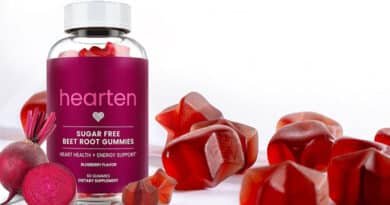Is Salmon Keto Friendly? Nutritional Benefits of Salmon on Keto Diet
When it comes to following a ketogenic diet, many people wonder about the compatibility of their favorite foods with a low-carb, high-fat lifestyle. One common question “Is salmon keto friendly” Spoiler alert: Yes, it is! Let’s dive deeper into why salmon is considered a superstar in the keto community.
Salmon is a delicious and versatile fish and a powerhouse of nutrients that perfectly align with the principles of the ketogenic diet. Rich in healthy fats, particularly omega-3 fatty acids, salmon helps maintain the high-fat intake required for ketosis.
Salmon is an excellent source of high-quality protein, which is essential for muscle repair and growth. It is also low in carbohydrates, making it an ideal food choice for those aiming to keep their carb intake minimal.
Its salmon is also packed with essential vitamins and minerals, such as vitamin D, B vitamins, and selenium, which support overall health and well-being. These make salmon a nutritious and satisfying option for anyone committed to a keto lifestyle.
Health Benefits of Eating: Is Salmon Keto Friendly?
Heart Health: Salmon supports cardiovascular wellness with its rich omega-3 fatty acids. These healthy fats help reduce bad cholesterol (LDL) levels and lower blood pressure making salmon a heart-friendly choice.
Regular consumption of salmon can significantly decrease the risk of heart-related issues such as heart attacks and strokes.
Brain Function: Omega-3s are good for your heart and essential for optimal brain health. Consuming salmon can improve cognitive function, enhance memory, and may even reduce the risk of neurodegenerative diseases such as Alzheimer’s and dementia.
The DHA (docosahexaenoic acid) in omega-3 fatty acids is mainly known for its role in brain development and function.
Anti-inflammatory Properties: The powerful anti-inflammatory properties of omega-3 fatty acids in salmon can help reduce inflammation. It is especially advantageous for individuals on a keto diet who often aim to enhance their overall health and well-being.
Omega-3s can lower inflammation, aiding in the management of chronic inflammatory conditions like arthritis, and may also support faster recovery from intense workouts.

Rich in Essential Nutrients: Apart from omega-3 fatty acids, salmon is packed with essential nutrients such as high-quality protein, vitamins D and B12, selenium, and antioxidants.
These nutrients support various bodily functions, including bone health, immune system strength, and energy production, making salmon a highly nutritious addition to a keto diet.
Supports Weight Loss: Salmon is an excellent source of lean protein essential for muscle repair and growth, especially on a keto diet. High-protein foods like salmon can help you feel fuller for longer, reducing unnecessary snacking and aiding in weight management The healthy fats in salmon can support ketosis, the metabolic state in which the body burns fat for energy instead of carbohydrates. Macronutrients Breakdown: Salmon is a nutritional powerhouse. A typical serving of salmon (about 100 grams) contains: the feature of salmon is its high content of omega-3 fatty acids. These healthy fats are essential for brain function, reducing inflammation, and supporting heart health. Zero Carbs: The most straightforward answer to the question of whether salmon is keto-friendly lies in its carbohydrate content—or lack thereof. Salmon contains zero carbs, making it an ideal choice for maintaining ketosis. It means you can enjoy salmon without worrying about it disrupting your carb limits, which is essential for those strictly monitoring their intake to stay in ketosis. High-Fat Content: Salmon is rich in healthy fats essential for keto dieters. These fats include omega-3 fatty acids, known for their anti-inflammatory properties and role in supporting heart health. These healthy fats help stay satiated, reduce cravings, and provide energy to sustain a low-carb lifestyle. Including salmon in your diet can make it easier to maintain balance without feeling deprived. Protein Powerhouse: While the keto diet emphasizes fats, protein is also essential. Salmon provides substantial-high-quality protein vital for muscle maintenance, repair, and overall health. The protein in salmon supports muscle recovery after workouts, helps maintain lean muscle mass, and contributes to a balanced diet. Salmon is a complete protein source because it contains essential amino acids that the body cannot produce on its own. Grilled Salmon: Grilling is one of the healthiest and most flavorful ways to cook salmon. To prepare, season the salmon fillets with salt, pepper, and fresh herbs like dill or rosemary. You can also add a squeeze of lemon juice for an extra kick. Grill the salmon on medium high heat until it’s cooked to your liking, typically around 4-6 minutes per side. Serve it with low-carb vegetables like asparagus, broccoli, bell peppers, and zucchini medley. Baked Salmon: Baking salmon is another easy and healthy option that requires minimal effort. Preheat your oven to 375°F (190°C). Place the salmon fillets in a baking dish and top them with keto-friendly ingredients like butter, lemon slices, minced garlic, and fresh dill or thyme. Cover the dish with aluminum foil to keep the moisture in and bake for about 20-25 minutes or until the salmon flakes easily with a fork. Pair the baked salmon with a fresh avocado salad tossed with mixed greens, cherry tomatoes, and a drizzle of olive oil for a complete and satisfying keto meal. Salmon Salad: For a quick and easy meal that’s perfect for lunch or a light dinner, toss flaked salmon with mixed greens, sliced avocado, cucumber, and cherry tomatoes. Add red onion for extra crunch and flavor. To keep it keto-friendly, choose a dressing made from olive oil, lemon juice Dijon mustard, and a touch of salt and pepper. You can also add some healthy fats by including a few olives or a sprinkle of feta cheese. Salmon salad is delicious and a great way to ensure a good balance of protein, healthy fats, and vegetables while following a keto diet. Fresh vs. Frozen: Depending on your needs and schedule, both fresh and frozen salmon are excellent choices. Fresh salmon is terrific if you cook it within a day or two, ensuring a rich flavor and texture. Frozen salmon, conversely, is convenient and can be stored for extended periods, making it a versatile option for meal planning. It’s often flash-frozen at peak freshness, maintaining its nutrients and taste. Wild-Caught vs. Farm-Raised: Wild-caught salmon is generally considered to be more nutritious and environmentally friendly than farm-raised salmon. Due to its natural diet and active lifestyle, it often contains higher levels of omega-3 fatty acids and tends to have a more robust flavor. However, farm-raised salmon is often more affordable and readily available, making it a practical choice for many consumers. It tends to have a milder flavor, which some people prefer. Choose based on your dietary preferences, environmental considerations, and budget. Storage Tips: To keep salmon fresh, store it in the coldest part of your refrigerator and consume it within a couple of days to ensure optimal taste and safety. If you buy it frozen, keep it in the freezer until you’re ready to use it, ideally within a few months, to maintain quality. When you’re ready to cook frozen salmon, thaw it slowly in the refrigerator overnight, or use the defrost setting on your microwave if you’re in a hurry. Always check for any off smells or discoloration before cooking to ensure it’s still good to eat.Nutritional Profile of Salmon

Rich in Omega-3 Fatty Acids
Why is Salmon Keto Friendly?

Integrating Salmon into Your Keto Meal Plan

Tips for Buying and Storing Salmon
Cooking Tips for the Best Salmon
Seasoning: Don’t be creative with your seasonings. Salmon’s mild flavor pairs well with various herbs and spices, from dill and basil to paprika and cumin.
Consider adding a squeeze of lemon or a sprinkle of garlic powder for an extra kick. Fresh herbs and zest can also elevate the flavor profile.
Cooking Time: Avoid overcooking salmon as it can become dry. Aim for a cooking time of about 10 minutes per inch of thickness, and look for a slightly translucent center to ensure it’s perfectly cooked.
A meat thermometer can help ensure accuracy; aim for an internal temperature of 125-130°F for medium rare.
Cooking Methods: There are countless ways to cook salmon, from grilling and baking to pan-searing and poaching. Grilling can add a delightful smoky flavor, while baking is more hands-off and ensures even cooking.
Pan-searing creates a delicious, crispy skin, and poaching keeps the fish moist and tender. Experiment with different methods to find your favorite, and don’t be bold. Combine techniques for a truly unique dish.
Delicious Keto-Friendly Salmon Recipes
Keto Teriyaki Salmon: Marinate fresh salmon fillets in a homemade keto teriyaki sauce made with soy sauce, freshly grated ginger, minced garlic, and a sugar substitute like erythritol or stevia. Let the salmon soak in the marinade for at least 30 minutes to absorb the flavors.
Grill on medium heat or bake in a preheated oven at 375°F until the salmon is cooked and flakes easily with a fork. Serve with a side of steamed vegetables like broccoli, green beans, or asparagus for a complete, low-carb meal.
Lemon Butter Salmon: Season fresh salmon fillets generously with salt, freshly ground black pepper, and garlic powder to taste. Arrange the salmon in a baking dish and top each piece with thin slices of fresh lemon and pats of high-quality butter.
Bake in a preheated oven at 400°F for about 15-20 minutes, or until the salmon is opaque and flakes easily. The simple yet elegant recipe highlights the fish’s natural flavors, making it a delightful dish that’s easy to prepare. Add a sprinkle of fresh parsley to enhance both the color and flavor.

Spicy Cajun Salmon: Prepare a spicy Cajun rub by mixing paprika, garlic powder, onion powder, dried thyme, dried oregano, and a pinch of cayenne pepper for an added kick.
Generously coat the salmon fillets with the spice blend, ensuring an even coverage.
Heat up a tablespoon of olive or avocado oil in a skillet over medium-high heat and let the magic begin. Pan-sear the salmon until the exterior is crispy and the interior is cooked to your desired level of doneness, usually about 4-5 minutes per side.
Serve with a side of cauliflower rice, easily made by grating fresh cauliflower and sautéing it with olive oil, salt, and pepper. The dish delivers a burst of flavor and a satisfying crunch.
Final verdict
Is salmon keto friendly? Without a doubt! Its zero-carb content, healthy fats, and high-quality protein make it an ideal choice for anyone following a ketogenic diet. Whether you prefer it grilled, baked, or in a salad, salmon is a versatile and delicious addition to your keto meal plan.
It is easy to incorporate into various dishes and also pairs well with other keto-approved foods like avocados, leafy greens, and nuts.
Salmon is rich in omega-3 fatty acids, known for their anti-inflammatory properties and cardiovascular benefits. Regular consumption of salmon can support brain health, improve mood, and even contribute to better skin and hair.
Enjoy experimenting with different recipes and savoring the numerous health benefits of fantastic fish. From simple weeknight dinners to gourmet preparations, salmon offers endless possibilities.
FAQs: is Salmon and Keto Friendly
Q: Can I eat salmon every day on a keto diet?
A: Absolutely! Salmon is a versatile and nutritious food that can be enjoyed daily. Just be sure to vary how you prepare it to keep things interesting.
Q: Is canned salmon keto friendly?
A: Yes, canned salmon is also keto friendly. It’s a convenient option for quick meals and snacks.
Q: What are some keto-friendly sides to serve with salmon?
A: Roasted vegetables, cauliflower rice, zucchini noodles, and avocado salad are great keto-friendly sides for salmon.
Q: How does smoked salmon fit into a keto diet?
A: Smoked salmon is another excellent option for keto dieters. It’s rich in protein and healthy fats, making it a perfect addition to salads and wraps.
Q: Are there any potential downsides to eating salmon on a keto diet?
A: The only potential downside is cost, as salmon can be pricier than other protein sources.




